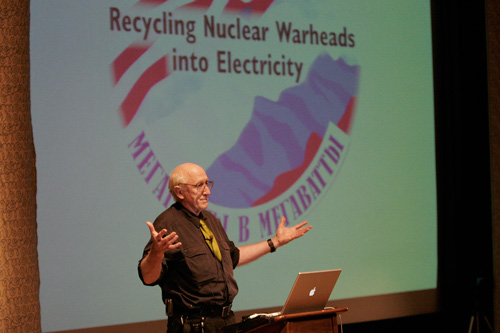
We depend on Stewart Brand to take the long view — his most recent TEDTalk, in fact, is about the Clock of the Long Now, a timepiece that marks off a period of 10,000 years. He’s a rabid thinker and collector of ideas; among his many fascinations, he is especially enamored of cities, and of the new ways they form and grow and function. His short talk from TED2006 made a somewhat shocking assertion: that squatter cities, those ramshackle slums surrounding many major cities, are actually a good thing.
At TED@State, he continues his thinking on cities. “I used to have a very romantic idea of villages,” he says. “That’s because I never lived in one.”
The following are running notes from Brand’s eminently quotable talk:
Subsistence farming is drying up, he says, and people are heading into town. In the bustling squatter cities, they see action, they see opportunity, they see a cash economy that they didn’t have access too. Squatters are building the urban world. They start flimsy and they get substantial as time goes by. In a town like Mumbai which is half slums – that’s 1/6 the GDP. Slums represent social capital. Family is mostly a rural event now.
These are not people crushed by the economy. These are people getting out of poverty as fast as they can, while taking part in an outlaw prank: the informal economy. it’s like dark energy in physics –- we don’t understand it and it’s huge.
Cities are places where things slam up against each other. (Brand shows the amazing footage of a train that runs through a Bangkok street market.) That’s the value of cities.
We’re going to keep being surprised by climate – which means an increase in urban climate refugees and resources wars. We need to look carefully at geoengineering, and acknowledge the challenge of getting any two countries to agree on how to do it. And we need to think about nuclear power. Did you know 10% of the power coming to this room is nuclear, coming from spent warheads, mainly Russian?
Discuss these and other ideas in the comments area below:
Comments (6)